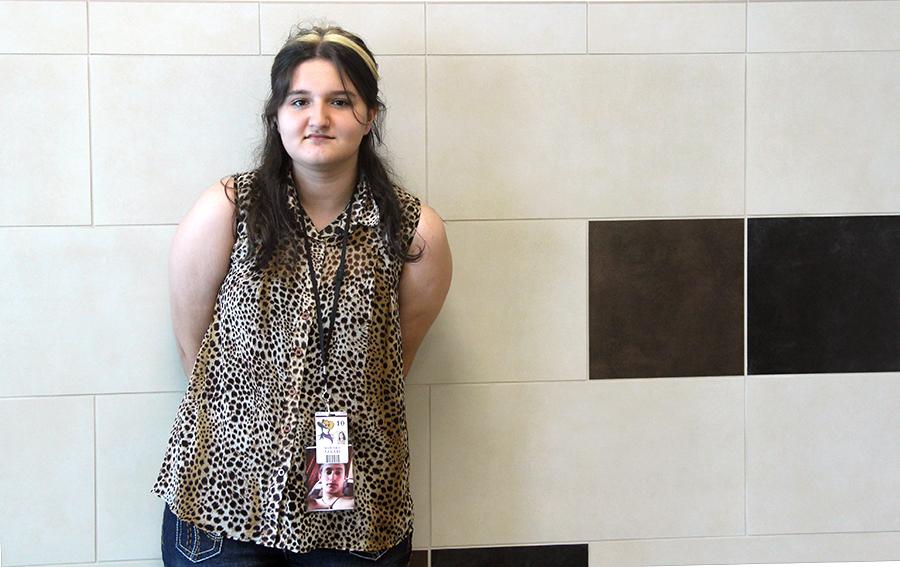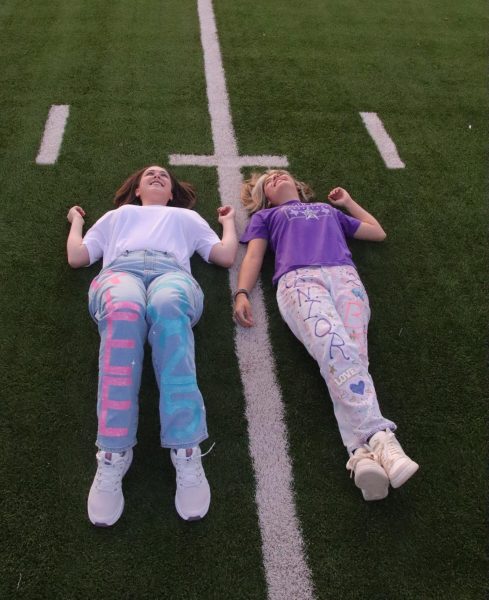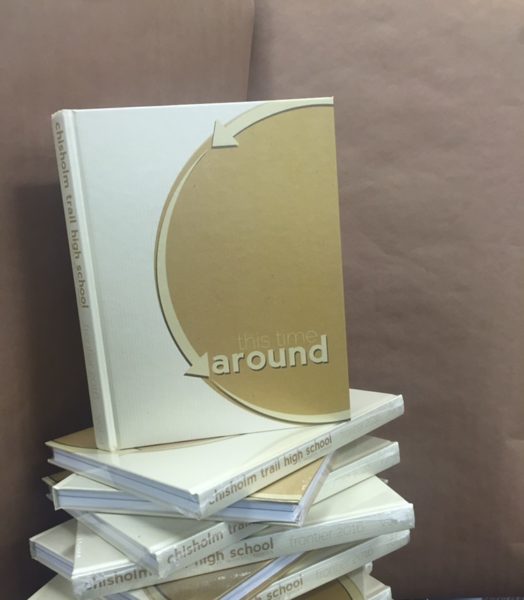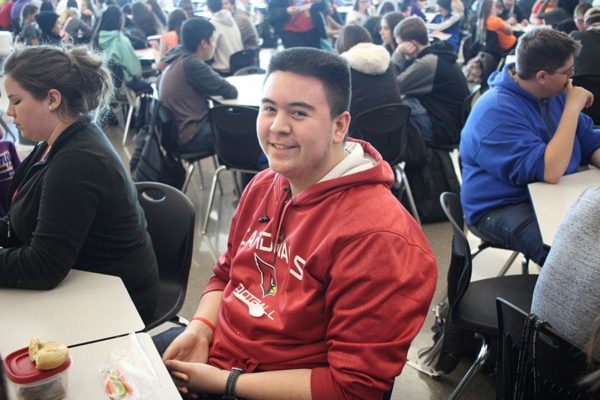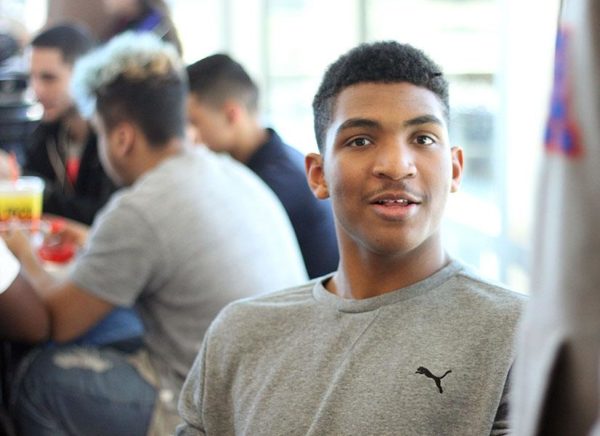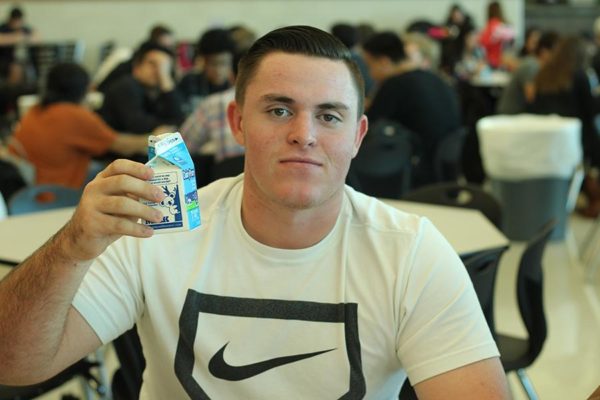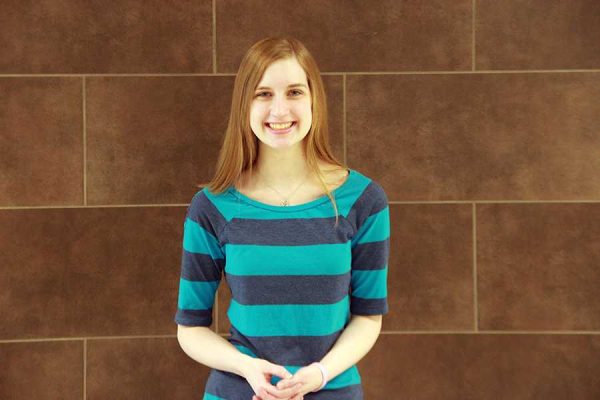More than Middle Eastern
An Iranian immigrant explains the reality behind the many misconceptions.
Americans have associated Niousha Afkari, an Iranian immigrant, with stereotypes they have of the Middle East. Photo by Nicholas Alvarez
“Hey, look. There’s a terrorist,” said the elementary school student. He was looking at Niosha Afkari, a young woman from Iran.
But Afkari is not a terrorist or many of the things others assume. Today, she is a 16-year-old student involved in schoolwork, photography, and her religion, Baha’i. She is also a Ranger.
***************************************************************
Afkari moved from Tehran, Iran when she was 9 in order to obtain a good education. In Iran, women were not allowed to attend many colleges.
“My sister, she graduated top five percent in her high school but she couldn’t go to college because she was a girl,” Afkari said.
Gender differences were apparent not only in older students, but also younger Iranian children as well.
“In the schools you had to wear this thing covering your hair and it was this uniform that you had, it wasn’t exactly a dress but it was sort of a bit… it was black so you can only imagine what it was like outside, how hot it would be,” Afkari said.
Despite the limitations on females in Iran, Afkari looks back fondly on her home country.
“Everyone thinks it’s all ghetto and everything but it’s actually not,” she said. “Have you ever seen New York in pictures? You know how crowded it is and it looks like Los Angeles? That’s what it’s like [in Iran].”
Afkari is returning to Iran for the first time this summer. She is most looking forward to shopping.
“It’s way cheaper there than it is here,” she said. “You know how you go to Wal-Mart to buy games and they’re $30? In Iran they would be $1.”
When Afkari came to Texas with her mother and father, a human resources group helped them get moved in.
“There were a team of people…they like got us an apartment and they decorated…I will still remember that, walking through the apartment and everything,” Afkari said, trailing off in her memory.
Although the human resources people were expected to stay with Afkari family for a couple months, the group ended up staying with the family longer. The family is still friends with the group to this day.
While her family was receiving help adjusting to American culture, 9-year-old Afkari was left to her own devices when it came to adjusting to schooling.
The transition from an Iranian school to an American school was a strange one for Afkari.
“The schools are very different from there because . . . if you went into a classroom, you wouldn’t see boys and girls in class together,” Afkari said. “It was weird because inthird grade all you would see was girls chasing boys and it [was] like, okay…” she said apprehensively.
She also did not have the easiest time fitting in with other students.
“When I was little… because they thought Iraq and Iran were the same place, they would be like “hey look, there’s a terrorist!” Afkari said.
It did not help matters that Afkari was a year older than many of her American peers due to her stay in Turkey after leaving Iran.
“That’s why I’m not a [junior] right now because I didn’t go to school for that whole one year that I was in Turkey.”
After a couple of years in American schools, Afkari’s tormentors faded, allowing her to pursue other interests such as baking and photography.
Afkari is also very involved in her faith, Baha’i.
“We believe in unity of everyone no matter their race or anything, and we don’t say that Mohammad wasn’t real or that Jesus wasn’t real,” Afkari said. “We believe in all religions.”
Afkari’s religion differs in many ways. Afkari can often be found teaching youth classes during the week to guide both pre-teens and teens, though she won’t be seen in a church or Baha’i facility. Instead she can be found teaching her classes at homes and parks.
One does not have to be Baha’i however to attend the classes.
“[We] basically go out into the community and teach around the world and teach the faith,” Afkari said.
Every 19 days Afkari can also be found hosting or attending feasts at other Baha’i homes. She also mentioned the many Baha’i in the DFW area that she often meets to celebrate holidays with.
“The whole Fort Worth and Dallas community has tons of Persians,” Afkari said, “so for [Baha’i] New Year’s, 12 days after…we always go to this park at this picnic and we get to see everyone.”
Afkari also aspires to do missionary work in Haifa, Israel, one of the centers for the Baha’i faith.
“It’s not something that you can just go [to], you have to sign up to have them accept you [to preach in Haifa],” Afkari said. “The more you are involved in your community and everything, the easier it will be to get accepted. It’s a privilege.”


